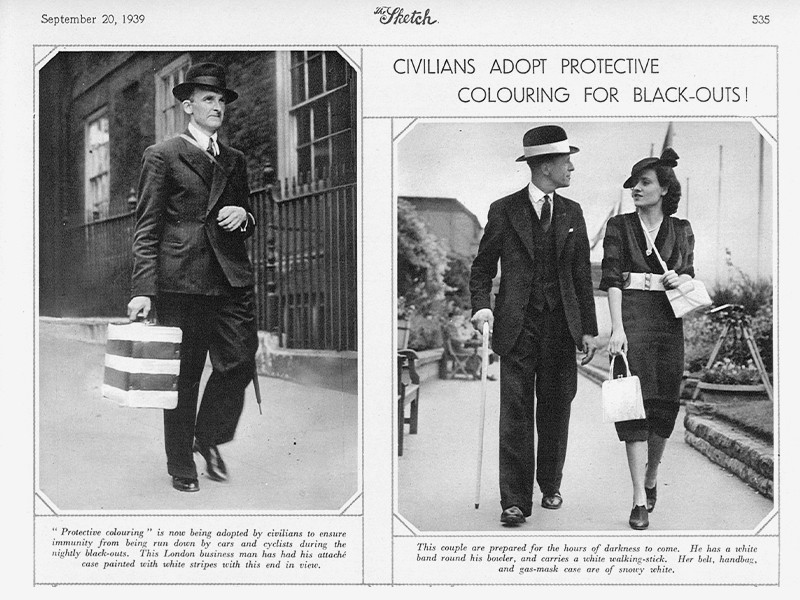
The Sketch, 1893–1958

The sole purpose of The Sketch is to pleasantly occupy a few minutes otherwise tedious. Should it amuse, we shall rest content
The only true history of a country is to be found in its newspapers.Historian and Whig politician
Access the full collection
Access the full archive of The Sketch, 1893–1958.
Institutional Free Trial
Start your free trialRegister for a free 30-day trial of The Sketch, 1893–1958, for your institution.
Institutional Sales
Visit Sales PagesellFor more information on institutional access, visit our sales page.
Already have a license? Sign in.
Explore the social and cultural transformations of the twentieth century, through the lens of British high society

First published in 1893, The Sketch belonged to a series of periodicals under the ownership of The Illustrated London News (ILN). Clement Shorter and William Ingram (former editor and managing director, respectively, of the ILN) established the magazine, which centred primarily on British high society and attracted a wealthy audience. Replete with photographs and illustrations, and featuring contributions on fashion, literature, and gossip, The Sketch provided extensive coverage of aristocratic and celebrity culture for nearly seven decades. Generally, it adopted a light-hearted tone. This collection contains almost 170,000 images from approximately 3,500 issues of The Sketch, published between May 1893 and December 1958.
Over the course of its existence, it printed the work of many eminent artists, including the renowned watercolourist Helen Allingham, celebrated crime novelist Agatha Christie, and George E. Studdy, creator of the famous "Bonzo the Dog" cartoons. Nevertheless, as with several other publications owned by the ILN during this period (notably The Sphere, 1900-1964 and The Bystander, 1903-1940), The Sketch remained a staunch defender of Britain’s imperial project, and often reflected the racist and xenophobic attitudes widely prevalent in Britain during these years. Therefore, whilst this collection provides useful material for those studying and researching the history of art, literature, and print culture, it also sheds light on the history of imperialism, colonialism, and slavery, and their representation within Britain’s most affluent circles.
Contents
The Sketch, 1893–1958...
The sole purpose of The Sketch is to pleasantly occupy a few minutes otherwise tedious. Should it amuse, we shall rest content
Discover
Highlights

Licensed to access "The Slave Raiding in West Africa"
7th March 1894:
Adopting a markedly casual attitude towards slavery, this piece (image 3) reports on the persistence of slave trading in the Lagos Colony (now Nigeria). As historian Kristin Mann indicates, the British authorities did little to dismantle the institution of slavery in the colony, which continued into the twentieth century.

Licensed to access "Does it Harm Them? Strenuous Exercise for Women"
26th April 1922:
Featuring female athletes from around the world, this article (image 11) describes a survey issued to doctors, asking their opinion on the effects of strenuous exercise for women. This highlights social attitudes towards women by, for example, taking into account women’s marital status.

Licensed to access "Sunshine Resorts"
31st December 1958
An increase in personal prosperity in the mid-century brought with it an increase in demand for foreign holidays. This article (images 19-22) provides an A to Z guide of "all the lovely places we might choose for holidays", from the traditional to the unconventional.
Insights
Despite its whimsical nature, The Sketch endeavoured to keep its readers abreast of current affairs, albeit from a conservative (and often racist) perspective. Specifically, its "our own country" column was dedicated to light-hearted domestic news, whilst "In the Great World" concentrated on significant events abroad.
The Sketch was decidedly pro-establishment, supporting both monarchy and empire. It recounted stories from Britain’s colonies in a regular segment revealingly titled "On Which the Sun Never Sets", including uncritical reports of both slavery and the slave trade in West Africa in the late nineteenth century. As economist John Maynard Keynes wrote in 1920, "the projects and politics of militarism, of racial and cultural rivalries, of monopolies, restrictions, and exclusions…were little more than the amusements of [a Londoner’s] daily newspaper".
Early editions of The Sketch featured "Women’s Pages", informing upper-class women about the latest trends in fashion. During the First World War, the periodical gained a larger female readership and, as a result, it sought to expand its appeal to (primarily wealthy) women by including pages on fashion and leisure throughout.
Like the other titles in British Illustrated Periodicals, 1869-1970, this publication traces the social and cultural transformations that occurred in Britain during the nineteenth and twentieth centuries. In particular, it demonstrates how the role of women in British society changed considerably during these years, highlighting – among other things – the entry of women into the workforce during wartime.
The Sketch provided a platform for some of the most popular literary and artistic movements in Britain. For instance, it published the first short stories by writers Walter de la Mare and Agatha Christie, and featured the first appearance of George E. Studdy’s "Bonzo the Dog" cartoon character (later of international fame). The Sketch also printed theatre and literary reviews, including recurring pieces such as "The Literary Lounger" and "Novel in a Nutshell".
Unlock Historical Research for Your Institution
Provide your students and researchers with direct access to unique primary sources.
Related Media


From the Archive: The Failures of Women in Art Contextual Essays

From the Archive: William Howard Russell and The Crimean Wars Cultural Legacy Contextual Essays

Guide to British Illustrated Periodicals, 1869–1970 Contextual Essays

Talking History: The Rise of Print Media | S1, Ep 1 Podcasts

Document of the Week: Agatha Christie’s “The Affair at the Victory Ball” (1923) Document of the Week








.svg)



